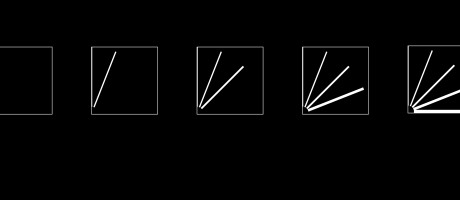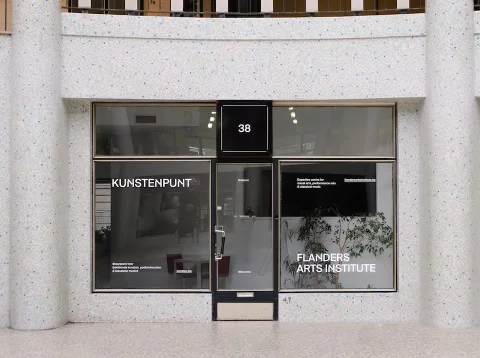
Landscape Sketch of the Arts: session classical music
Schedule of Landscape Sketch of the Arts: session classical music
| On Tuesday 24 September: | |
| 10:00 - 10:30 | Welcome and introduction by Flanders Arts Institute |
| 10:30 - 12:15 | Sessions before noon |
| 1) Working professionally in the arts (classical music) | |
| 2) Processes versus products | |
| 3) Inclusion | |
| 4) Arts education at school | |
| 12:15 - 13:15 | Lunch |
| 13:15 - 13:45 | Musical intermezzo: Trio Malatya |
| 13:45 - 15:30 | Afternoon sessions |
| 1) Classical Music today | |
| 2) Processes versus products | |
| 3) Representation | |
| 4) Digital and technology | |
| 15:30 - 16:30 | Networking drink |
| 20:30 - 22:00 | Voorstelling: In What We Trust / Gent Festival van Vlaanderen |
-
From 10:30 to 12:15
Sessions before noon
Before noon, you can choose between these four topics.
-
From 10:30 to 12:15
1) Working professionally in the arts (classical music)
What does it mean to work in the classical music business? The distinction between amateur and professional became increasingly blurred, business models vary widely and non-classically trained creators are developing professional practices. Who is allowed to participate and who is excluded? Is there enough room - literally and figuratively - for newcomers, or do established values take up the disproportionate space? What barriers do young musicians and composers face in building a professional career? To what extent do the conservatoires prepare them for this? How is the collaboration in the sector today? And what about working internationally? Do recent discussions on sustainability have implications on how we work in and with foreign countries? Do we go for less and better, or does intensive international practice remain the norm for professional practice?
-
From 10:30 to 12:15
2) Processes versus products
Producing and presenting: that's where the centre of gravity lies within classical music today. It’s not an illogical priority, but what about artistic development? On the one hand, classical musicians seem to be increasingly presenting themselves as creators. While on the other hand, performing repertoire remains the norm. How do musicians and creators view this issue? What are we missing as a sector in the current, results-oriented model? Does classical music benefit from more room for development? What could that give us, and why is this not there today? Do schools put enough effort into developing an artistic vision and personality, or does technical excellence overshadow such competences?
-
From 10:30 to 12:15
3) Inclusion
Inclusion, or rather the lack of it, has been a major issue in the sector for years. What about the diversity of our audiences? Who finds their way to classical music, who does not, and why? What physical and symbolic barriers are there? How welcoming are existing audiences to new faces? How do we tackle this, do we have the necessary space and resources for it? Who bears the responsibility? Working on inclusion is mainly seen as a necessary but difficult task: but what (artistic) opportunities are we overlooking?
-
From 10:30 to 12:15
4) Arts education at school
Arts and education are very important to each other. Creativity, critical sense and imagination are crucial in the development of all young people. How do education and art find each other in designing interesting teaching materials, experiencing contemporary art or working with artists in the classroom? How can we free up the necessary time and resources for this in schools, arts organisations and artists? Is there room for experimentation? And what inspiring practices and methods can strengthen collaboration? In short, how can art become an integral part of the life and learning of children and young people?
(only in Dutch)
-
From 13:15 to 13:45
Musical intermezzo: Trio Malatya
The Trio Malatya is a Ghent-based chamber music ensemble. It was founded in 2022 by three young musicians: Yassine Posman (clarinet), Jacob Van Durme (cello) and Taha Posman (piano). They study as an ensemble at the Royal Conservatory of Brussels and the Dutch String Quartet Academy. Together they intend to tackle the diverse repertoire for clarinet, cello and piano from Beethoven and Brahms to contemporary composers such as Lachenmann and Janssens.
-
From 13:45 to 15:30
Afternoon sessions
In the afternoon, you can choose between the following four topics:
-
From 13:45 to 15:30
1) Classical Music today
Classical music is a sector in transition. On various fronts, it is experimenting with other ways of working: other forms of presentation, the shift from mere repertoire to storytelling, etc.. What drives these developments, and where does the uniqueness of the sector lie? What is classical music today, and how do committee members and reviewers interpret that concept? And for whom are we actually doing it? How does the audience fit into the picture?
-
From 13:45 to 15:30
2) Processes versus products
Producing and presenting: that's where the centre of gravity lies within classical music today. It’s not an illogical priority, but what about artistic development? On the one hand, classical musicians seem to be increasingly presenting themselves as creators. While on the other hand, performing repertoire remains the norm. How do musicians and creators view this issue? What are we missing as a sector in the current, results-oriented model? Does classical music benefit from more room for development? What could that give us, and why is this not there today? Do schools put enough effort into developing an artistic vision and personality, or does technical excellence overshadow such competences?
-
From 13:45 to 15:30
3) Representation
A diverse sector starts with ourselves. How heterogeneous are our teams today? What is the reason for that? The question can be extended to repertoire: what can be heard on our stages today and what cannot? Who decides what is being performed, and on what grounds? How do we relate today to a canon that is predominantly white, male and Western? Is a broader view of repertoire indeed the key to a more diverse and inclusive field? And how do we avoid tokenism and opportunism? How do we approach it with integrity?
-
From 13:45 to 15:30
4) Digital and technology
Digital technology is everywhere, and the classical music sector cannot ignore it either. Working digitally can offer new opportunities - in terms of communication and promotion, but also artistically. What are the financial implications of these digital experiments? Is our infrastructure adapted to new programmes with more technical needs? What are the risks of artificial intelligence (AI)?
-
From 20:30 to 22:00
Voorstelling: In What We Trust / Gent Festival van Vlaanderen
Gent Festival van Vlaanderen en Kunstenpunt nodigen je na de sectorsessie graag uit op:
In What We Trust op dinsdag 24.09.2024 om 20:30 in de Groenzaal - Lange Boomgaardstraat 116, 9000 Gent. Reserveer je ticket via de link die je ontvangt na inschrijving voor deze sessie.Wat betekenen geloof, religie en zingeving in de diverse samenleving van vandaag?
Voor deze gloednieuwe productie bundelen I SOLISTI en het Vlaams Radiokoor de krachten met schrijfster Maud Vanhauwaert en componist Frederik Neyrinck.
In samenwerking met LARF!, het artistiek huis voor kinderen en jongeren uit Gent, voerden de makers een jaar lang gesprekken met veertienjarigen van verschillende culturele achtergronden. Ze polsten naar hun idealen: waarin geloven ze en hoe zien ze de wereld van morgen? Waarvoor willen ze opkomen, waarvoor willen ze leven?
Zienswijzen en flarden van deze gesprekken maken deel uit van de nieuwe tekst die Maud Vanhauwaert schreef en live op het podium brengt. Op de pupiters staat nieuw werk van Frederik Neyrinck, naast de Mis in e mineur van de diepreligieuze Anton Bruckner, die 200 jaar geleden werd geboren. Bruckner schreef de mis, zijn eerste grote meesterwerk, voor de bijzondere bezetting van een achtstemmig gemengd koor en vijftien blaasinstrumenten.
Meer info over deze voorstelling vind je op de website van Gent Festival van Vlaanderen.
